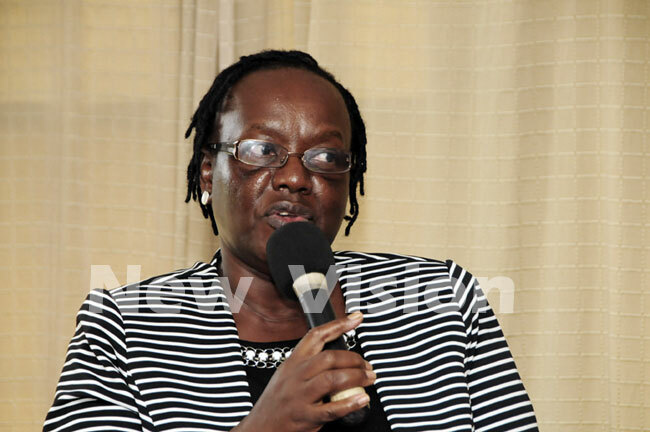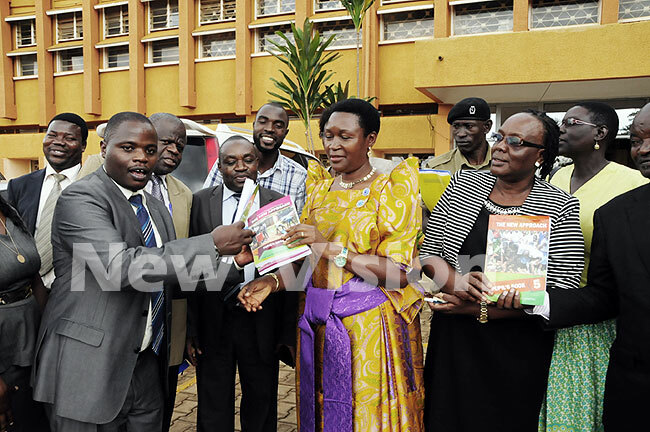A call to teachers: Stop teaching 'theory science'
“Something must be done to improve the teaching and learning of science especially provision of instructional resources."
PIC: Educationists Hellen Musiime and Gerald Muguluma perusing text books published by the Science Teachers' Initiative. (Credit: Eddie Ssejjoba)
EDUCATION
Lack of practical teaching and absence of instructional materials is one of the major causes of poor performance of Science subjects in schools, the National Curriculum Development Center director (NCDC), Grace Baguma has revealed.
She attributed this to lack of innovation and laziness by teachers who conduct lessons theoretically.
Baguma said a study had indicated that the failure rate for science subjects in secondary schools was above 55 percent and in some areas above 60 percent, which she attributed to lack of adequate and proper instructional materials, lack of innovation and lack of practical teaching on the side of teachers.
“Something must be done to improve the teaching and learning of science especially provision of instructional resources, which include other materials used in teaching other than text books,” Baguma (pictured immediately below) said.

The director advised teachers to change the model of teaching and stop instructing students in theory.
She was speaking at the Science Teachers’ Initiative (STI) workshop held at the NCDC offices in Kyambogo under the theme 'Improving the quality of science education towards achievement of the sustainable development goals in Uganda'.
It was attended by major stakeholders and players in the education sector.
Baguma said that despite the presence of the science policy, which she said gives priority to emphasize teaching of sciences, the failure rate was still high especially for Biology and Chemistry.
During a brainstorming session, several educationists however attributed the lack of practical teaching by teachers to fear of failure to complete the syllabus in time given the time that a teacher takes to prepare a practical lesson.
Other reasons highlighted were lack of motivation to teachers, many of whom remain disgruntled by to poor pay and failure to get incentives, poor training in education training institutions and inappropriate curriculum for teachers.
They advocated for government, donors and private partners to support the STI initiative to support authors and publishers of more practical text books in order to guide the teachers in making teaching more practical.

Science teachers and educationists handing over some published science practical books to the state minister for primary education, Rosemary Seninde at the workshop. (Credit: Eddie Ssejjoba)
Teachers under the STI umbrella revealed that they had produced a number of science instructional materials in accordance with the NCDC guidelines, as one of their contribution to the new approach to practical teaching of science in schools and pledged to continue producing more materials.
The available materials include text books for Primary Four to Seven, Chemistry for Senior One and Two and Biology for Senior One and Two.
The state minister for primary education, Rosemary Seninde appealed to science teachers to stop the ‘talk and chalk’ system of instructing learners, which she said had to some extent produced theoretical students.
“We should stop teaching students for the sake of obtaining high grades, you should be able to give quality education through practical teaching."
The minister advocated for change in approach of teaching right from nursery level to university.
Seninde applauded STI for their initiative to produce science instructional materials but asked them to go down to schools and tickle teachers to change the way they conduct their teaching.
The assistant commissioner in the ministry of education, Baritazale Kule said that the ministry supports any initiatives to improve the teaching of sciences, which he said would demystify the teaching of sciences in schools.